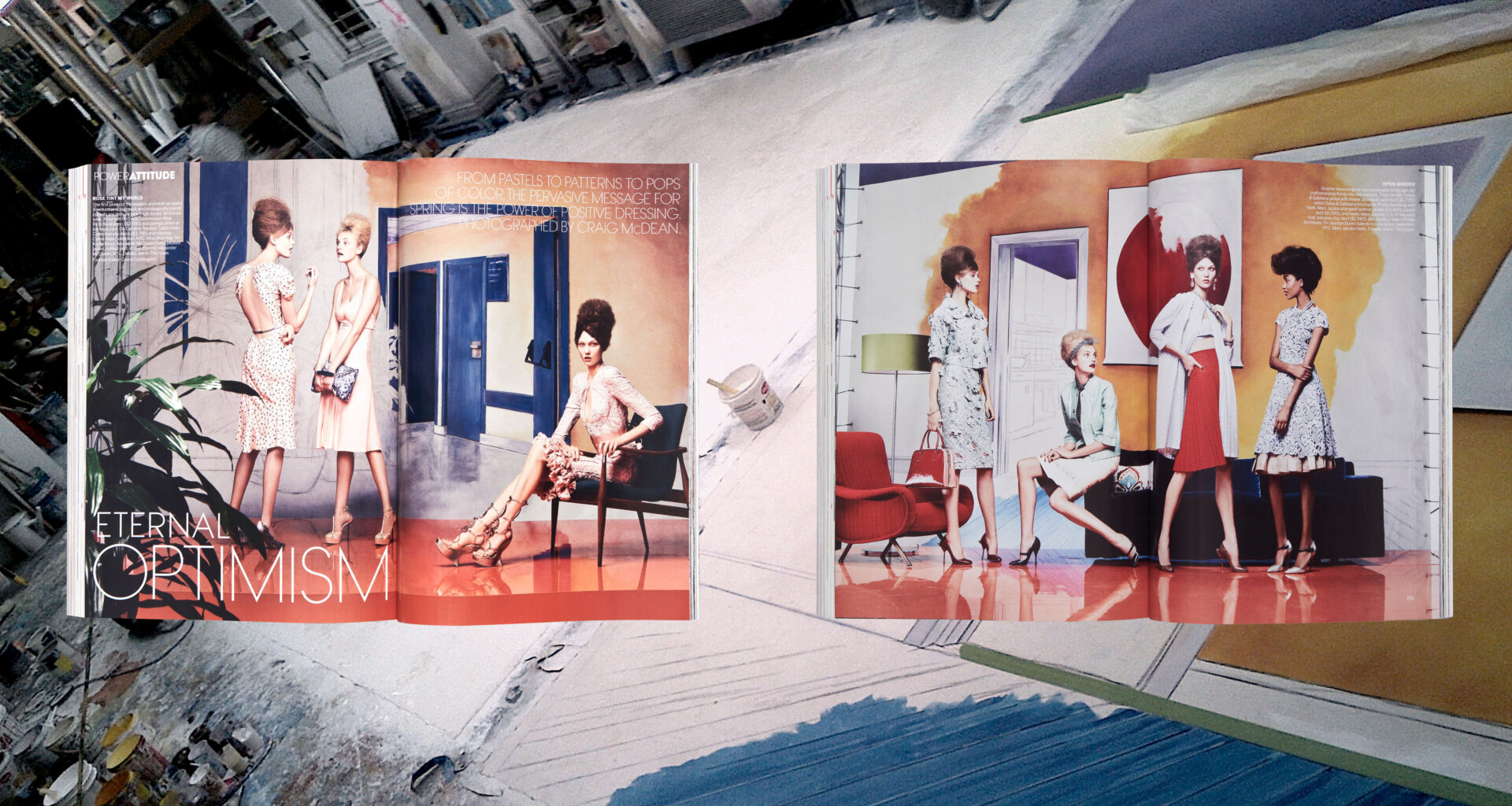Piers Hanmer has always had a gift for seeing the soul in spaces. ‘I don’t think you can really learn it,’ says the London-born, New York-based set designer. ‘I remember my mum getting a new kitchen fitted when I was about 14. Apparently, I came down from my room and said, “Oh, that’s a terrible idea. You’re cutting the window there, the sight line is all wrong.” Then they changed it. It’s a weird thing, I’ve always understood space and I’ve always understood colour.’
You may not have heard of Hanmer, but you’ve likely seen his work. One of the most sought-after set designers in the industry, he’s had a hand in creating some of the most inventive fashion images of the past two decades, working prolifically alongside greats like Annie Leibovitz, Craig McDean, Willy Vanderperre and Steven Klein. Arriving in September 2025 (and available for pre-order now), a new book maps a journey through his remarkable career, unveiling the making of his defining sets from the mid-2000s to the present day.
Piers Hanmer: Distracted by Fashion
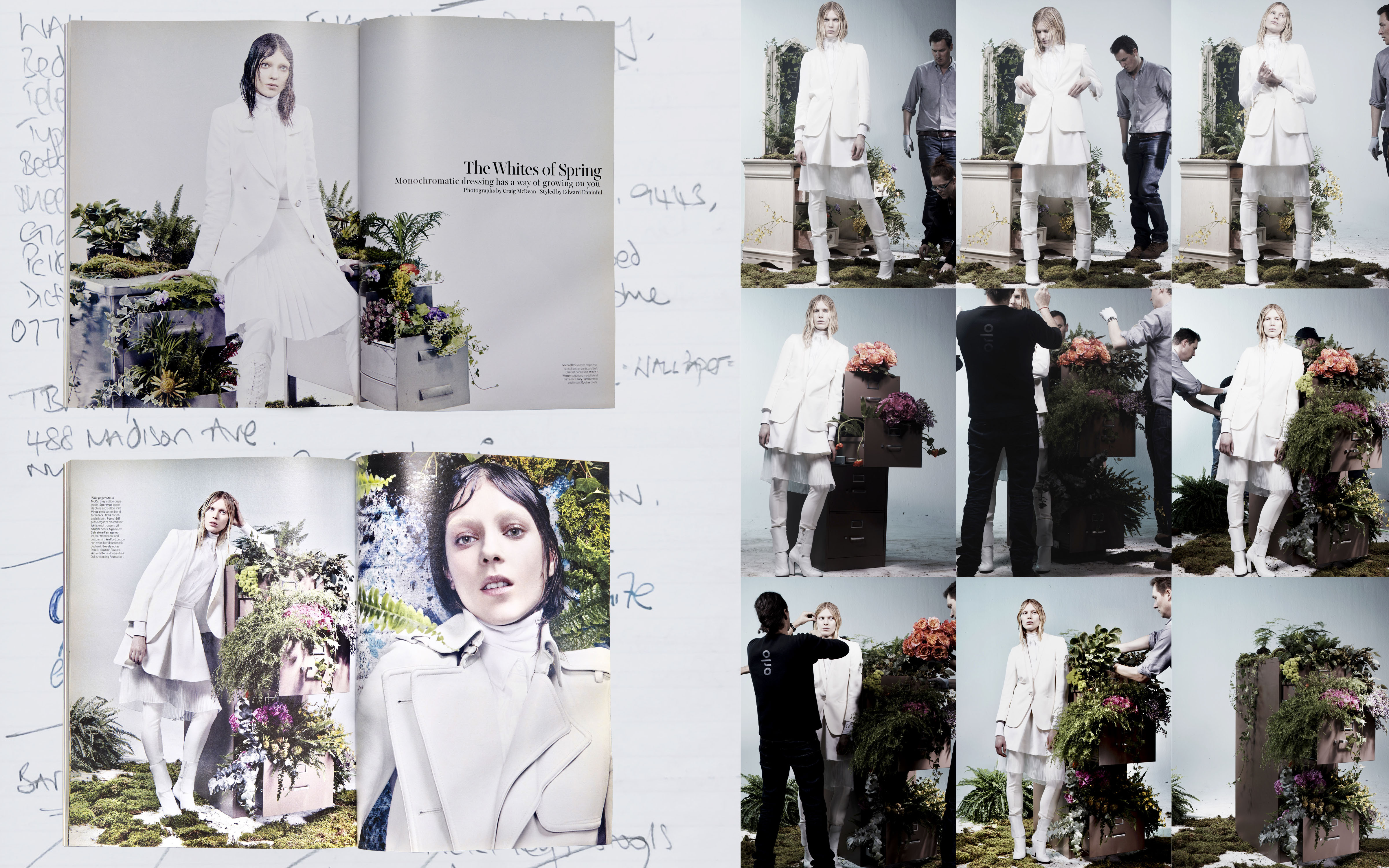
(Image credit: Morel Books)
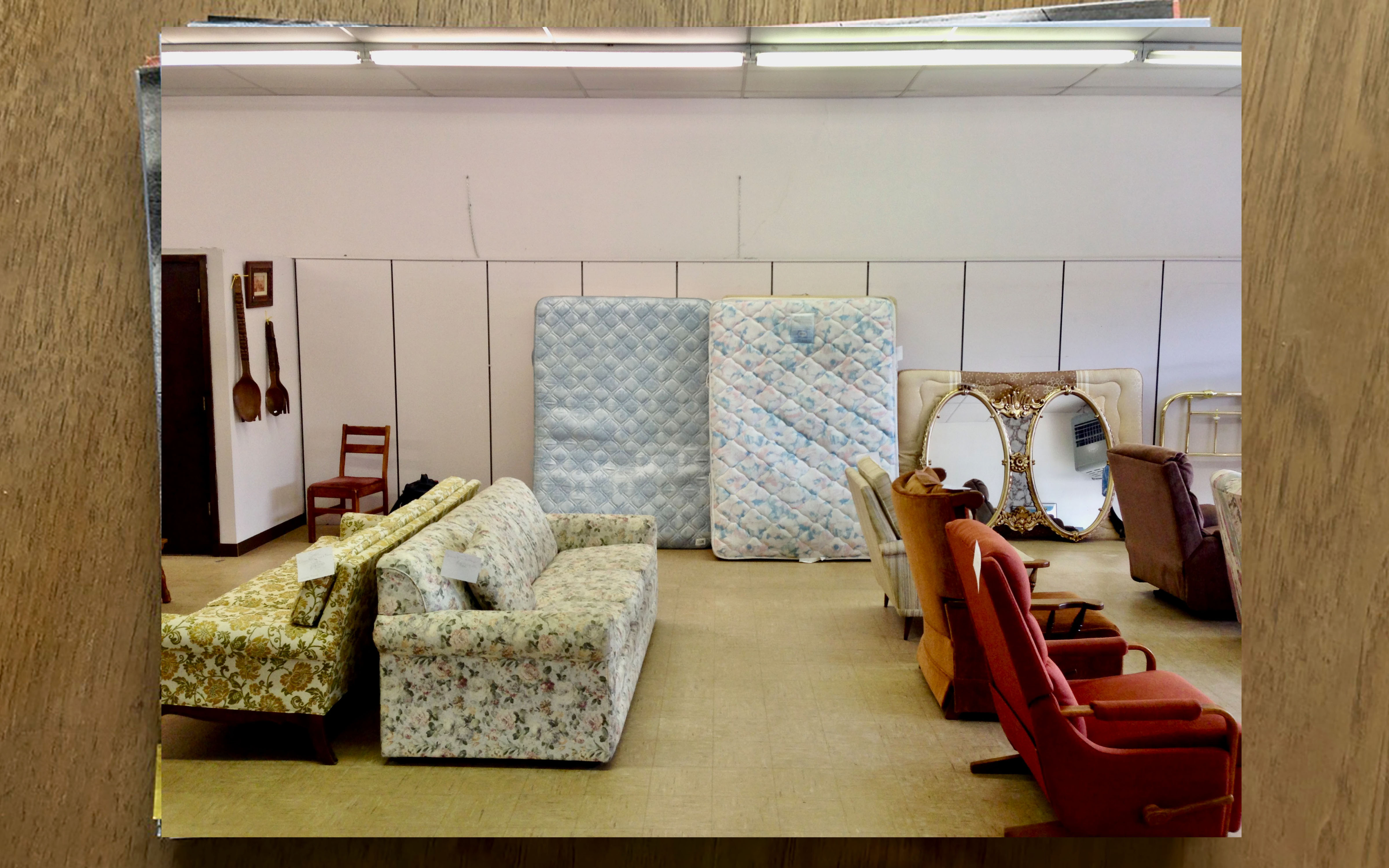
The book has a scrapbook-like quality, collating behind-the-scenes imagery, magazine spreads and design sketches
(Image credit: Morel Books)
Rather than a glossy fashion tome destined to collect dust on a coffee table, Distracted by Fashion arrives as an invitingly personal scrapbook, mixing sketches, moodboard references, journal entries and sublime editorial imagery. With an opening conversation with Edward Enninful, the book lifts the veil on the little-documented art of set-making while celebrating an adrenalised era of fashion – when ambitions were as big as budgets, and anything felt possible.
Hanmer’s journey to becoming a set designer wasn’t straightforward. Initial dreams of becoming a photographer found him in Los Angeles in his late twenties, somewhat lost and looking for work. ‘I was really struggling to make any money,’ he remembers. ‘Then I got this opportunity to be an assistant on a shoot for American Vogue with Steven Meisel. They were shooting Nicole Kidman. I was just a lowly PA, picking up the trash and getting coffees for people, but I remember walking into the studio and seeing this extraordinary set. I was like, “What is this insane world?” I was immediately hooked.’
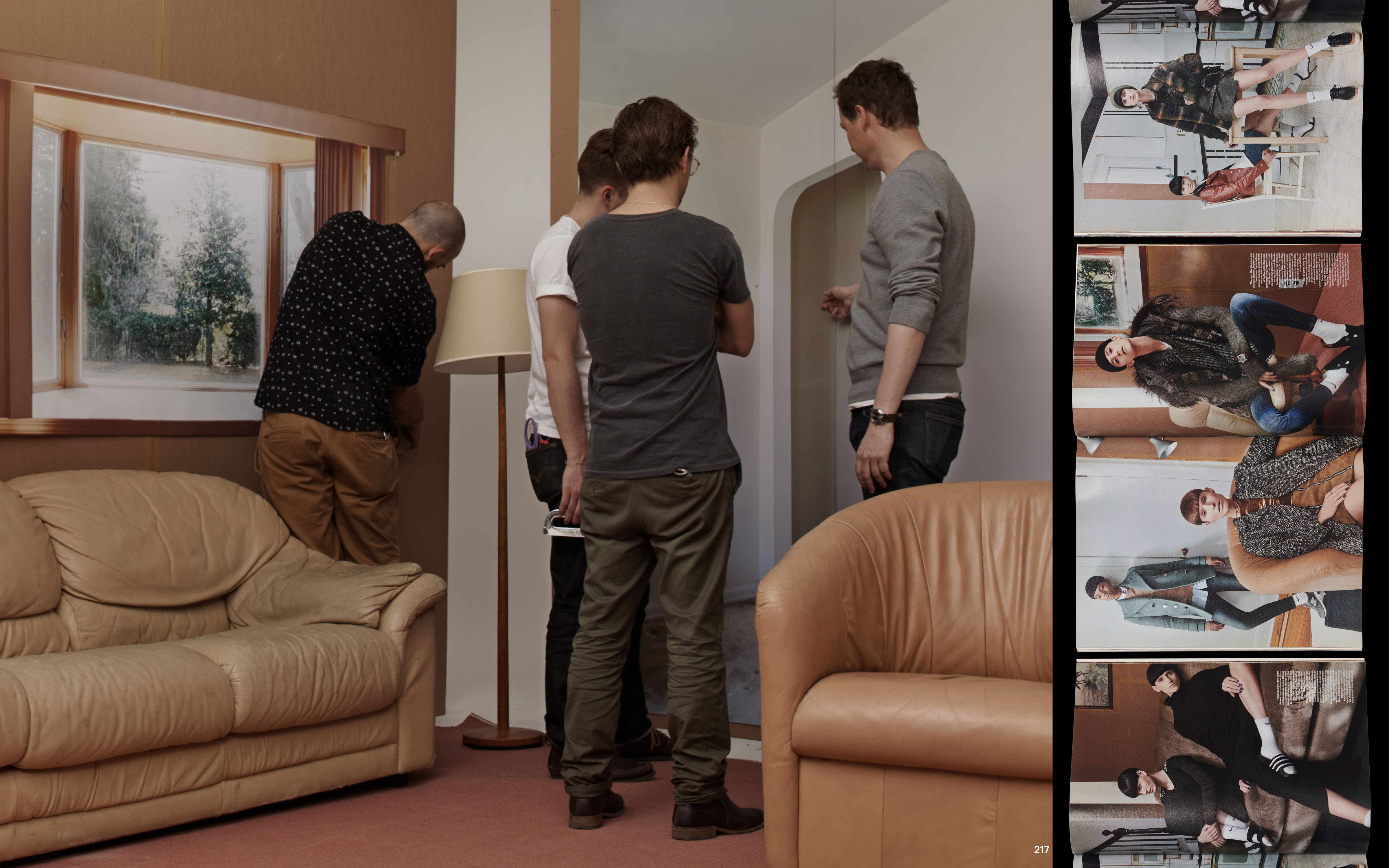
An image of Piers Hanmer working on set.
(Image credit: Morel Books)
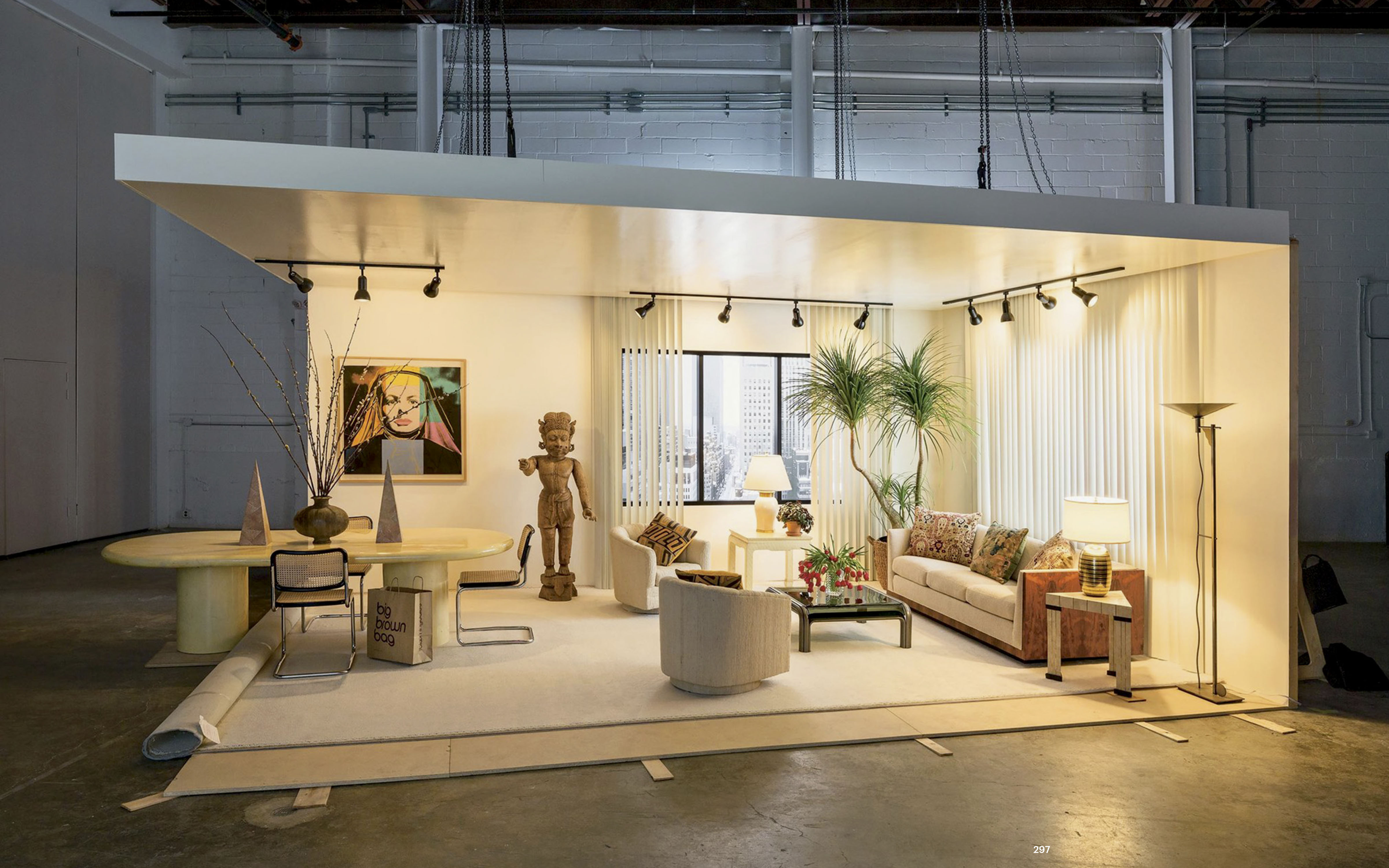
One of the designer’s sets on a sound stage
(Image credit: Morel Books)
Hanmer swiftly started assisting set designers between New York and Los Angeles, and not long after, an encounter with Annie Leibovitz altered the trajectory of his career forever. ‘We were sitting on the backlot of Paramount Studios and had been shooting an Olympian in a big glass tank of water,’ he says. ‘Annie just turned to me and said, “I’ve been watching you. I’d like to hire you to design sets.” It was a lightning-doesn’t-strike-twice moment. Suddenly, I was working with all these editors at American Vogue and Vanity Fair, and all these other amazing photographers. Everything just went whoosh within a few months.’
‘I wanted to pull back the curtain and give people who don’t live on sets a sense of what it was like for us to put those stories together’
Piers Hanmer
While he wasn’t aware of it at the time, Hanmer made his ascent during a golden era of editorial. Print magazines were at their peak influence and the worlds of celebrity and fashion were blurring, leading to a period of relentless, star-strewn creativity. From the hundreds of sets Hanmer created, his most memorable are dissected in Distracted by Fashion, from the flowers exploding whimsically from office furniture in an editorial for W magazine to the visual delight of a plastic bag placed at the edge of a frame, echoing the texture of a model’s shaggy pink fur jacket for Vogue in 2009. Thumbing through the book, it’s evident that set designers are the unsung world builders on set – so often behind the magic of an image, yet rarely rising to the status of their photographer peers.
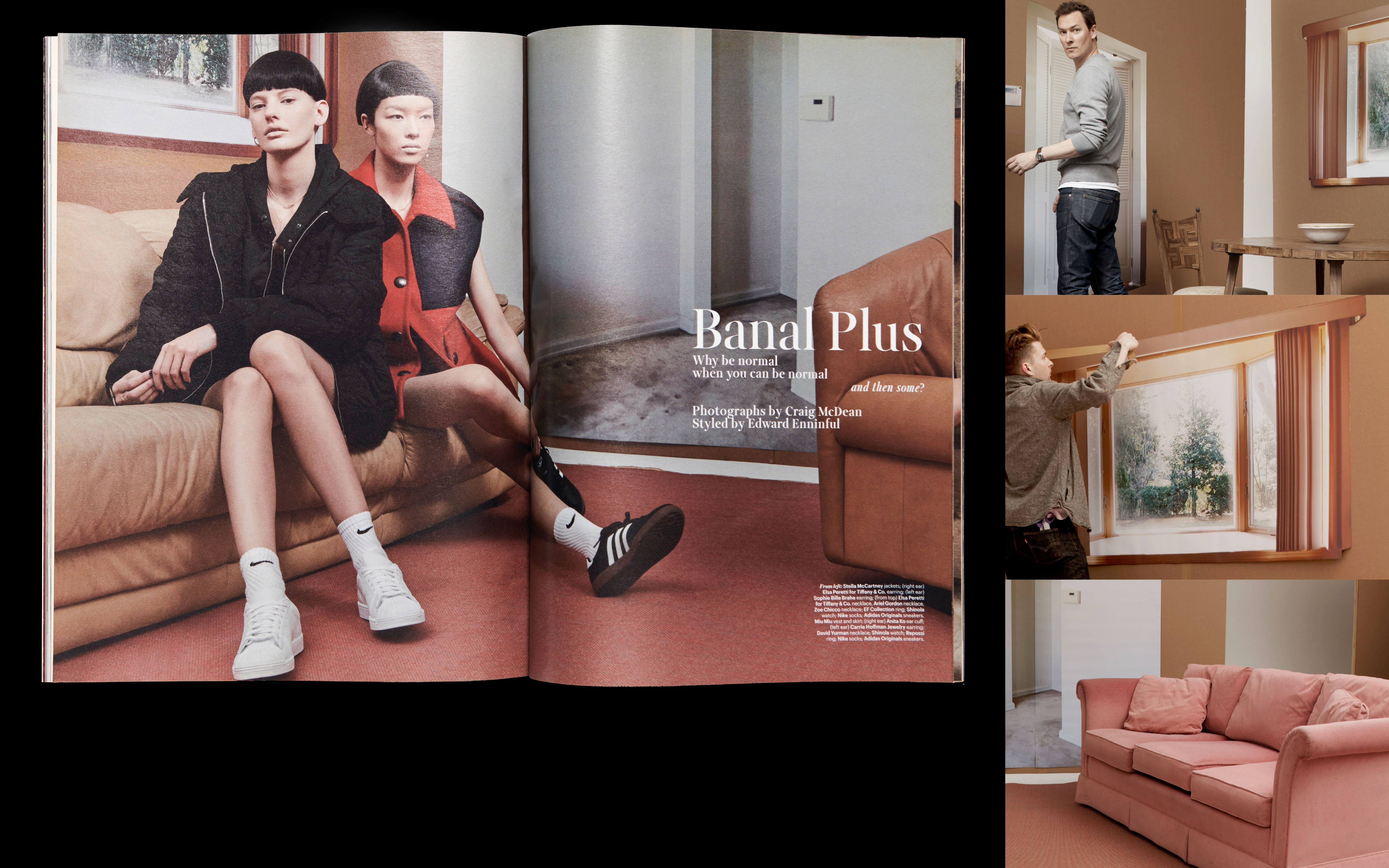
A story Hanmer worked on for W magazine in 2015 with Craig McDean
(Image credit: Morel Books)

A series of vintage furniture, with Hanmer’s work often riffing on domestic spaces
(Image credit: Morel Books)
It’s also true that very few fashion books are produced from the perspective of a set designer – and perhaps none that reveal the treasure hunting, physical heft and architectural assembly behind their work. It’s something that legendary photographer Craig McDean, a longtime collaborator of Hanmer’s, first pointed out to him and which set the idea for the book in motion. ‘It was during lockdown on a socially distanced walk with Craig,’ Hanmer remembers. ‘He said, “Why have you never done a book? I’ve got so many pictures of you and your team on set. You can just use my archive, help yourself.”’
Taking McDean’s behind-the-scenes images as a starting point, Hanmer worked with Brixton-based publisher Morel Books on the book, which mimics the 10×8-inch workbooks he’s kept for decades. Beneath its cover is an eclectic peek into his creative process, where sleek editorial imagery is jumbled with scrawled notes and drawings of set mock-ups, and iPhone snaps of sunsets, trash, and rain through windshields that reveal his palette of inspiration. ‘I just wanted it to feel really tactile and unprecious,’ says Hanmer. ‘None of it’s in order. I wanted to pull back the curtain and give people who don’t live on sets a sense of what it was like for us to put those stories together.’
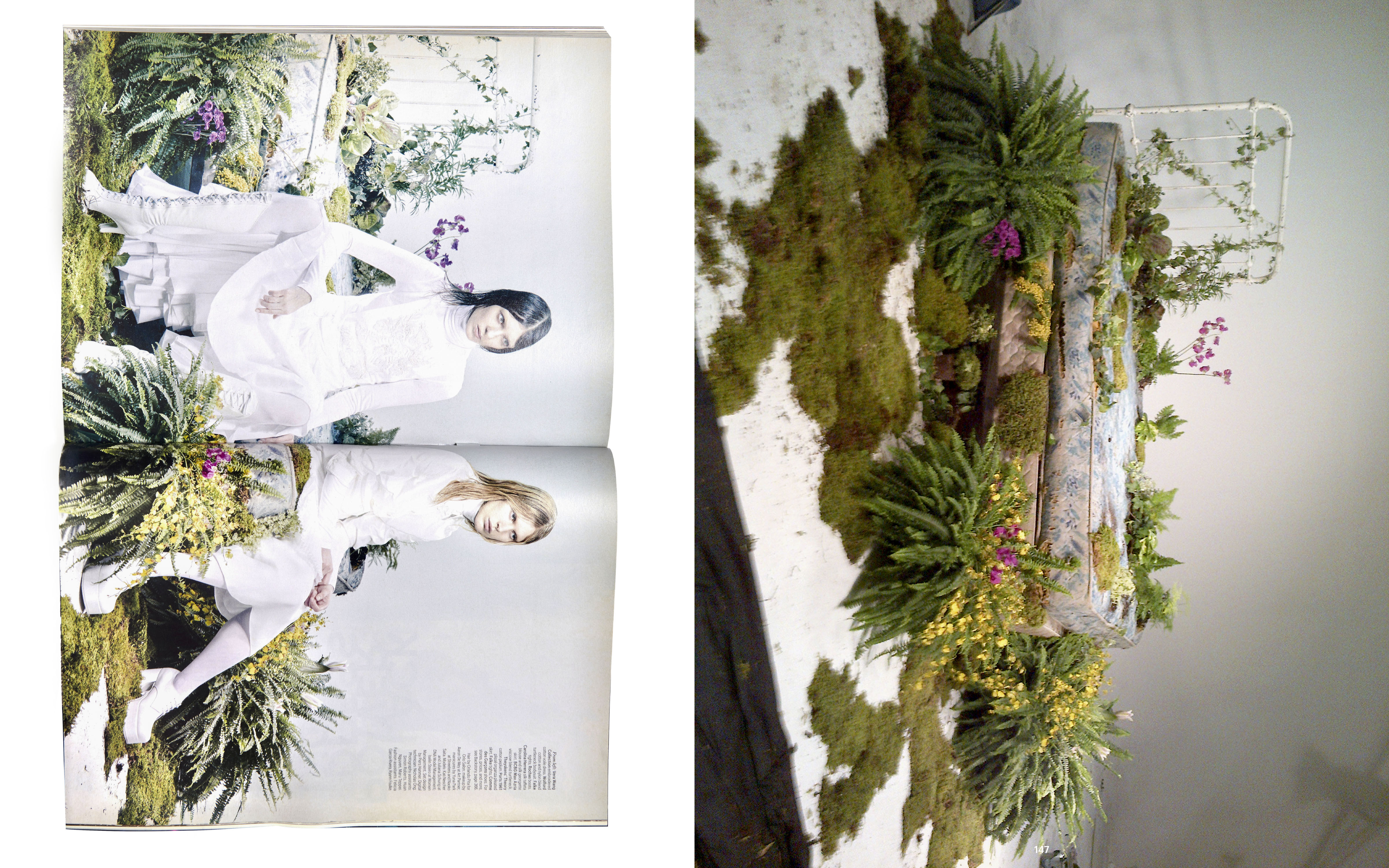
(Image credit: Morel Books)

A series of sets featuring real plants and flowers, their scale and meticulous construction harkening back to a time in fashion where budgets were big and magazine shoots had a blockbuster quality
(Image credit: Morel Books)
While many creatives find going through their archives an arduous process, for Hanmer it was quite the opposite. ‘Making the book, it really it struck me how I’m missing a creative outlet,’ he says. ‘I still work as a set designer, I create a lot of sets for commercial clients, but it’s a very different process. My overreaching feeling is what an incredibly creative time it was for all of us. Edward and I talk about it in the book – how you had to nail it every time otherwise you got replaced. From that pressure came amazing work. It really just pushed every creative button in your body.’
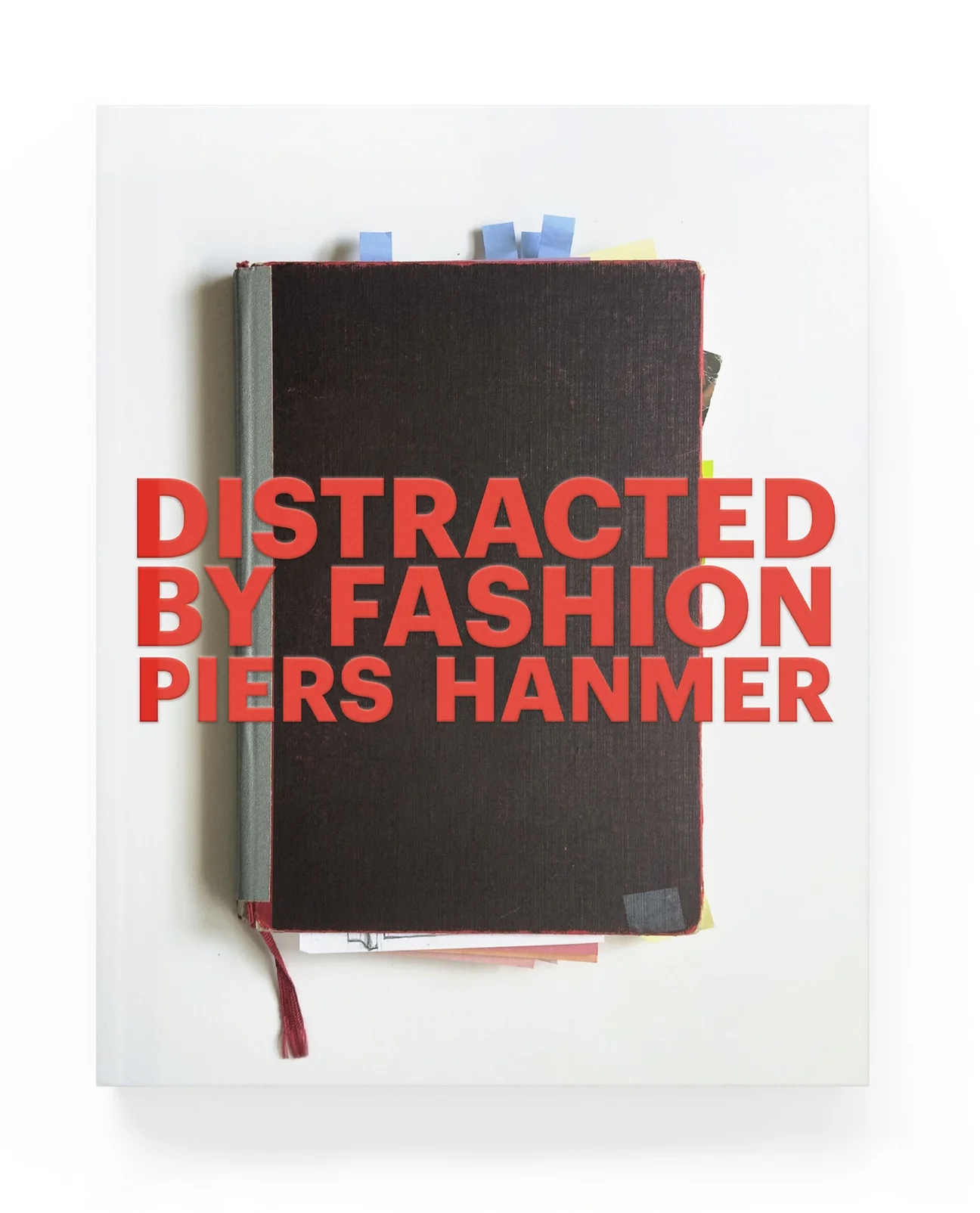
Mörel Books
Distracted by Fashion

